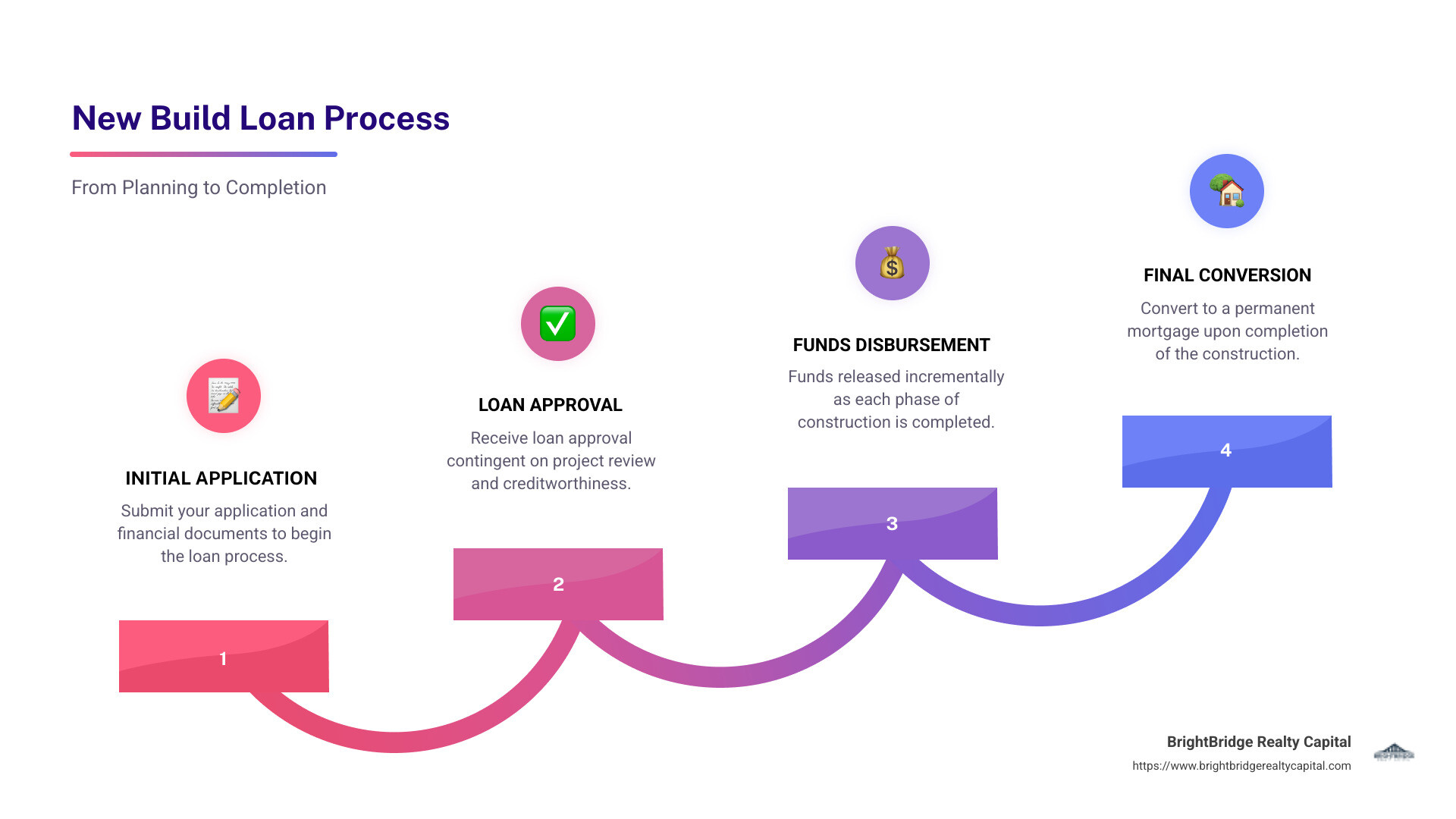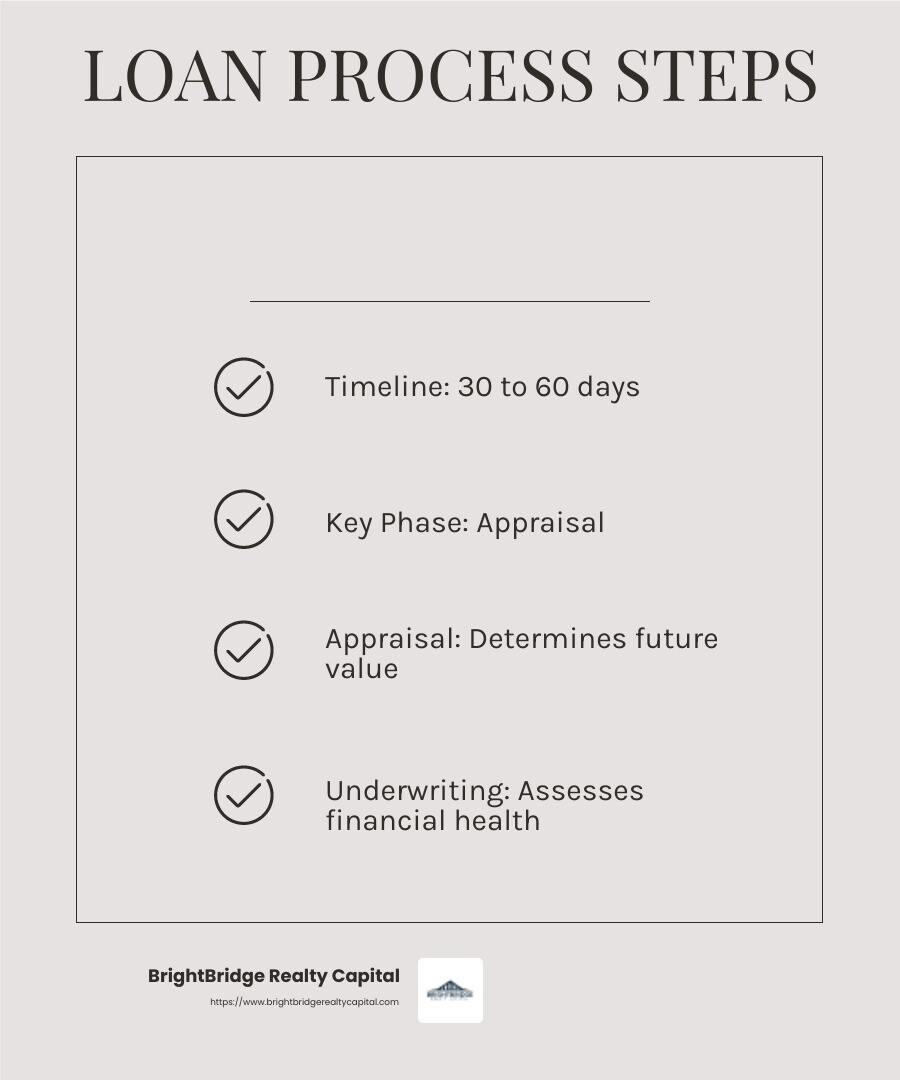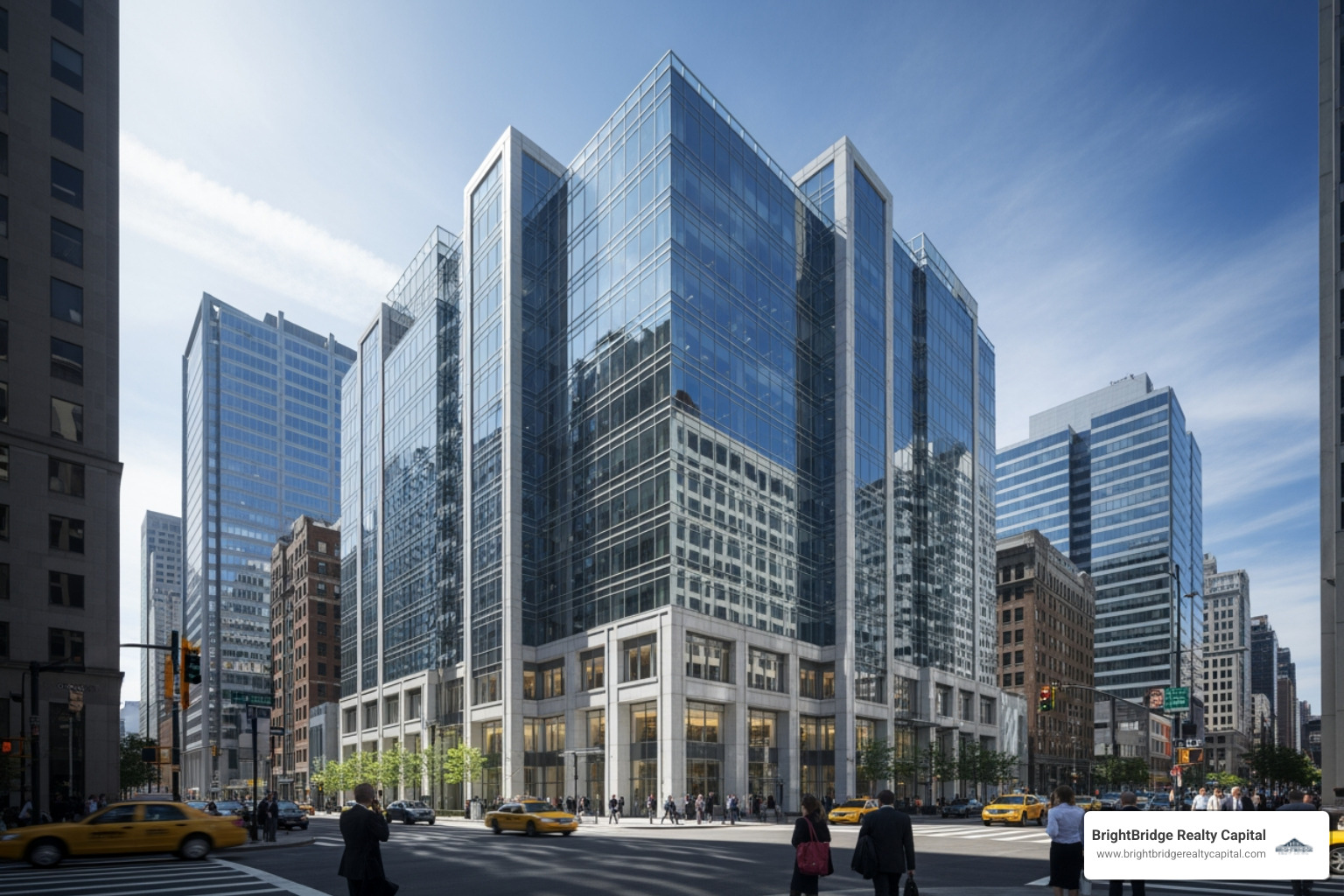Blueprint to Success: Your Guide to the New Build Loan Process

The New build loan process is like drawing up blueprints for your dream home—it sets the foundation for everything that follows. If you're a real estate investor eager to break ground on your next project, understanding the nuances of new build loans is crucial.
- What is it? A financial tool designed to cover costs associated with building a new home or undertaking significant renovations.
- How does it work? Funds are disbursed incrementally, aligned with the stages of construction, ensuring payments align with progress.
- Why is it different? Unlike typical mortgages, these loans are more involved because they fund construction, progress inspections, and sometimes convert to permanent mortgages.
Building a home can be an exhilarating venture, representing new beginnings and possibilities. Yet, navigating through financial pathways, especially the new build loan process, can present challenges. This journey involves multiple steps and demands precision and patience to ensure success. Understanding fundamental aspects—like loan applications, builder coordination, and project viability—plays a critical role in overcoming these problems.
Thankfully, with a reliable partner like BrightBridge Realty Capital, investors can tap into flexible financing options that simplify the loan process and accelerate growth. By offering a clear roadmap and swift loan approval, we can help turn your real estate ambitions into solid, new structures.

Common New build loan process vocab:
Understanding the New Build Loan Process
Starting on a new construction project? It's essential to grasp the new build loan process to ensure a smooth journey from blueprint to reality. Let's break down the key steps and types of loans you'll encounter along the way.
Key Steps in the New Build Loan Process
1. Choose a Builder
Selecting the right builder is crucial. Look for a licensed contractor with a solid track record. Your lender will want to know that your builder can complete the home on time and within budget. Consider asking friends for recommendations or consulting the NAHB’s directory of local home builders’ associations.
2. Initial Discussion
Before diving into paperwork, have a detailed conversation with your builder and lender. Discuss your vision, budget, and timeline. This initial discussion sets the stage for a successful project and ensures everyone is on the same page.
3. Documentation Review
Prepare to gather and review essential documents. This includes construction plans, a detailed project budget, and proof of your builder's credentials. You'll also need to provide financial documents like pay stubs and tax statements to prove your income and assets.
Types of Construction Loans
Understanding the different types of construction loans can help you choose the best option for your project.
Construction-Only Loan
- Short-term financing: Covers the construction period, typically up to a year.
- Separate mortgage: Once construction is complete, you'll need to refinance into a traditional mortgage.
- Higher interest rates: These loans often have higher rates compared to standard mortgages.
Construction-to-Permanent Loan
- Seamless transition: Converts into a permanent mortgage once construction is finished.
- Single closing: You only pay one set of closing costs, simplifying the process.
- Interest-only payments: During construction, you'll typically make lower, interest-only payments.
Renovation Loan
- For existing properties: Ideal for homeowners looking to finance significant renovations.
- Combines costs: Merges your existing mortgage with renovation expenses.
- Flexible terms: Can cater to various renovation needs, from minor updates to major overhauls.
Understanding these steps and loan types will set you on the right path. With BrightBridge Realty Capital's expertise, navigating the new build loan process becomes a structured and less daunting task.
Preparing for Your New Build Loan
Before diving into the construction of your dream home, it's crucial to prepare for the new build loan process. This involves understanding key financial requirements and choosing the right builder. Let's break it down.
Choosing the Right Builder
Licensed Builder
Your builder plays a pivotal role in the success of your project. Lenders require you to choose a licensed contractor with a proven record. A licensed builder ensures quality and compliance with local regulations.
Contractor Requirements
Ensure your builder can provide financial statements, current licenses, and insurance documentation. These are essential for the loan process and demonstrate the builder's reliability.
Builder's Preferred Lender
Some builders have preferred lenders. While it's not mandatory to use them, they can offer benefits like streamlined processes or favorable terms. Discuss this option with your builder to see if it fits your needs.
Completing Necessary Paperwork
Construction Plans
Detailed construction plans are essential. They outline your project's scope and help lenders assess the feasibility of your vision. Work closely with your builder to ensure every detail is covered.
Project Budget
A comprehensive project budget is crucial. It should include all construction costs, land expenses, and any additional fees. This budget helps determine your loan amount and ensures you're financially prepared.
Home Appraisal
A home appraisal estimates the property's future value once construction is complete. Lenders use this to assess risk and determine loan terms. Ensure your plans align with market values to avoid appraisal issues.

Credit Score
Your credit score is a key factor in loan approval. A score of at least 680 is typically required for construction loans. Improving your score can lead to better terms and lower interest rates.
Debt-to-Income Ratio
Lenders assess your debt-to-income (DTI) ratio to ensure you can manage payments. A lower DTI ratio is favorable, as it shows you have enough income to cover new debt. Aim to reduce existing debts before applying.
Down Payment
A significant down payment, often 20% or more, is typically required. This shows your commitment and reduces the lender's risk. If you own the land, it might count towards this requirement, easing the financial burden.
By understanding these elements and working with a reliable builder, you're setting a strong foundation for your new build loan. With BrightBridge Realty Capital, you're in capable hands to steer this process smoothly.
Managing the Construction Phase
Once your new build loan is approved and construction begins, managing the construction phase efficiently is crucial. This phase involves several key steps, including funds disbursement, making interest-only payments, and regular inspections. Let's explore each of these components in detail.
Funds Disbursement
In the construction phase, funds are not released all at once. Instead, they are disbursed in stages, known as "draws." Each draw corresponds to a completed phase of construction. Before releasing the next draw, the lender requires an inspection to ensure that the work is on track and meets the agreed standards. This staged disbursement helps keep the construction process organized and ensures that funds are used appropriately.
Interest-Only Payments
During construction, you'll only need to make interest-only payments on the amount that has been disbursed so far. This arrangement can help ease the financial burden during the building process. It's important to budget for these payments, as they will only cover the interest, not the principal. Once construction is complete, the loan will convert to a permanent mortgage, and you'll begin making payments on both the principal and interest.
Inspections
Regular inspections are a critical part of the construction phase. At the end of each draw period, an inspector will evaluate the progress to ensure everything is proceeding as planned. These inspections protect both you and the lender by ensuring that the construction meets quality standards and aligns with the project's timeline. Successful inspections lead to the release of the next draw, keeping the project moving forward.
Converting to a Permanent Mortgage
Once construction is complete, your construction loan will transition into a permanent mortgage. This process is seamless with a construction-to-permanent loan, as it automatically converts without requiring a separate loan application. This means you only have to pay one set of closing costs, saving you time and money.
However, if you opted for a construction-only loan, you'll need to refinance into a traditional mortgage upon completion. This involves going through the mortgage application process again, which can incur additional costs and require another set of closing fees.
By understanding these steps and preparing accordingly, you can manage the construction phase effectively and transition smoothly into a permanent mortgage. With BrightBridge Realty Capital, you're supported every step of the way, ensuring that your dream home becomes a reality without unnecessary stress.
Frequently Asked Questions about the New Build Loan Process
What is the typical timeline for a new build loan process?
The new build loan process generally takes between 30 to 60 days. This timeline can vary depending on several factors, such as appraisal timelines and the lender's underwriting queue.
Appraisal is a crucial step, where an independent appraiser evaluates your project plans and the property to determine its future value. This helps the lender ensure that the investment is sound. Delays in this step can extend the timeline.
Underwriting is another key phase, where the lender assesses your financial health and project details to decide if the loan should be approved. This involves verifying your credit score, income, and other financial documents to ensure you meet the lender's criteria.

How do interest rates for construction loans compare to traditional mortgages?
Interest rates for construction loans are typically higher than those for traditional mortgages. This is because construction loans are considered riskier. Unlike a traditional mortgage, there's no existing property to use as collateral during the building phase.
Construction loan rates can be 1% to 4.5% higher than regular mortgage rates. They often fluctuate with prime interest rates, although some loans allow for a temporary rate lock. This means your payments could increase if rates rise during construction.
Lenders view construction loans as riskier due to the potential for construction delays or cost overruns. Therefore, they charge higher rates to offset these risks.
What are the common requirements for a construction loan?
To qualify for a construction loan, you'll need to meet several requirements:
Credit Score: Most lenders require a credit score of at least 680. This is higher than what's typically needed for conventional VA or FHA loans.
Debt-to-Income (DTI) Ratio: Lenders will assess your DTI ratio to ensure you can manage additional debt. A lower DTI ratio indicates better financial health.
Down Payment: A minimum down payment of 20% is usually required, although some lenders may ask for as much as 30%. This requirement is higher than many traditional mortgages, reflecting the increased risk of construction loans.
These requirements ensure that borrowers are financially stable and capable of completing the construction project successfully. By meeting these criteria, you increase your chances of securing a construction loan and bringing your dream home to life.
Conclusion
Starting on the journey to build your dream home can be both thrilling and daunting. At BrightBridge Realty Capital, we aim to make the new build loan process as seamless and stress-free as possible. Our commitment is to provide competitive rates and a straightforward process so you can focus on what truly matters—bringing your vision to life.
Our unique approach sets us apart. We offer fast closings, often within a week, which means fewer delays and quicker access to funds. This speed is crucial in the construction phase, where timing can make all the difference. By eliminating intermediaries, we ensure that you receive the best rates directly from us, making your investment more cost-effective.
Choosing BrightBridge Realty Capital means choosing a partner that understands your needs and works diligently to support your goals. We provide custom solutions that fit your specific requirements, whether you're building a custom home or developing a larger project.
Our nationwide presence allows us to serve clients across the country, ensuring that no matter where your project is located, we have the expertise and resources to assist you.
Ready to start your journey with us? Visit our BrightBridge Realty Capital service page for more information and let’s turn your dream home into a reality.


